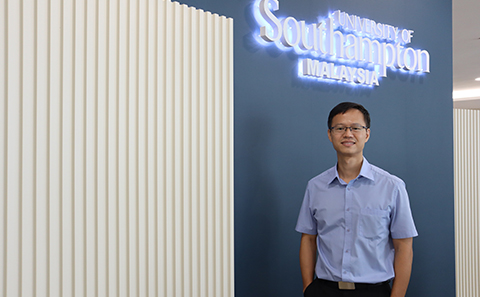Wearable device to prevent dangerous dehydration

An innovative wearable device to warn of dehydration in the elderly is being designed by a University of Southampton researcher. The device could prevent serious illness and save lives every year – particularly when heatwaves hit.
The device, which is under development, can be adapted and worn on different parts of the body (for example the arm), issuing warnings before dehydration becomes dangerous.
Dr Suan Hui Pu, from the University of Southampton’s Malaysia campus, is working with a team at the Massachusetts Institute of Technology (MIT) to miniaturise and further develop the technology. He has been selected by the Malaysian-American Commission on Educational Exchange and the J. William Fulbright Foreign Scholarship Board as a Fulbright Visiting Scholar for 2023-2024.
Dr Pu, Associate Professor of Mechanical Engineering, said: “Dehydration is most common in older adults, due to a higher prevalence of conditions such as impaired kidney function, a reduced sense of thirst, or diabetes, which can all increase the risk of dehydration. But dehydration is currently difficult to diagnose accurately, and it can lead to serious health problems.”
In hospitals and care homes, it’s common for patients and residents to be assessed for dehydration using questionnaires or blood tests.
“Using questionnaires is highly subjective and frequent blood tests may be impractical,” said Dr Pu. “It means dehydration is often missed, and an accurate, non-invasive wearable sensor, could make a huge difference.”
During his time at MIT, based in the world-leading Institute for Medical Engineering and Science, Dr Pu will work on the design of the dehydration sensor and contribute to human studies, under the mentorship of biomedical engineer Professor Martha Gray.
He will then return to Malaysia to conduct further tests of the technology in a tropical climate. These tests will contribute invaluable data around the application of the technology in a different demographic and cultural setting.